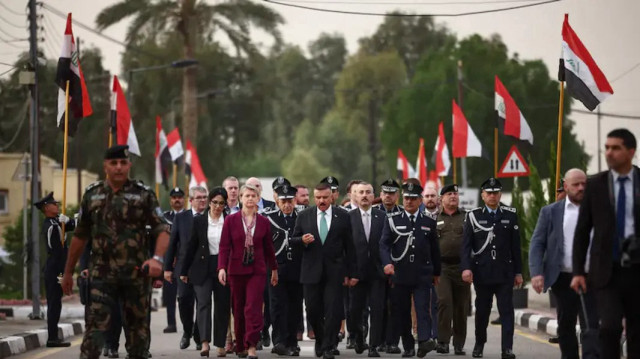

File photo
Agreement hailed as 'world first,' will see UK provide £300,000 for Iraqi law enforcement training, with focus on border security, organized immigration crime, drug trafficking
The UK and Iraq on Thursday agreed on a joint strategy to combat human trafficking networks that transport thousands of irregular migrants across the English Channel in small boats.
During a three-day visit to Iraq, UK Home Secretary Yvette Cooper finalized the agreement, which includes intelligence sharing, joint law enforcement operations, and measures to expedite the return of failed Iraqi asylum seekers.
The agreement, hailed as a "world first," will see the UK provide £300,000 for Iraqi law enforcement training, with a focus on border security, organized immigration crime, and drug trafficking.
Separately, during a press conference on Thursday, Prime Minister Keir Starmer emphasized the significance of the deal, saying: "This is a world first that will help us smash the people smuggling gangs and secure our borders. The Home Secretary has been out in Iraq to seal this deal, and we've also announced funding for Iraqi law enforcement to tackle this problem upstream, way before it reaches our shores."
The collaboration aims to increase the prosecution of human trafficker gangs by leveraging enhanced cooperation between the two nations.
The UK government is also making strides in improving the asylum process, with Starmer highlighting recent progress, saying, "Asylum returns are up 53% in the last 12 months compared with the previous year. Total returns are up 34% in the last year. And we will keep on going, because this is the work of change."
Starmer used the opportunity to contrast his administration's actions with those of the previous Conservative government, accusing them of overseeing an "open borders experiment" that contributed to rising immigration figures.
The deal comes as the UK grapples with historically high net migration figures.
Data shows that net migration reached 906,000 in the year leading up to June 2023, fueled by 1.3 million arrivals compared to 414,000 departures.
While net migration dropped to 728,000 in the subsequent year, the figures remain a pressing issue for the Labour government.
Starmer acknowledged public concerns, stating: "Alongside the NHS and the economy, securing our borders is the issue that matters to working people."
#English Channel
#Iraq
#migrants
#UK
